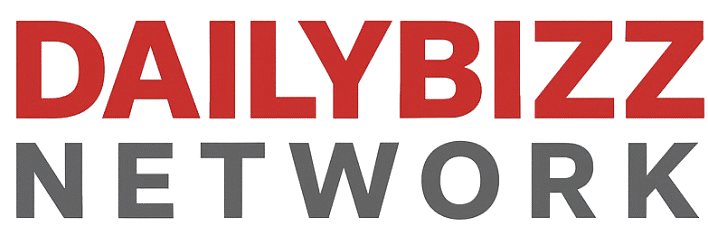TikTok Ban in the United States: Latest Updates, Political Impact, and What It Means for Users

What’s Happening With TikTok?
In a major move that has triggered debates nationwide, the TikTok Ban in the United States has resurfaced as a headline topic in 2025. With Congress tightening its grip and bipartisan support growing, this controversial social media platform faces one of its most serious threats yet. Millions of American users are anxiously watching developments unfold as the ban looms closer than ever.
Timeline of Key Events Leading to the TikTok Ban
- 2020–2021: TikTok was previously under fire during the Trump administration due to concerns over user data privacy.
- 2022–2023: Tensions cooled as the Biden administration focused on other priorities, but pressure never fully dissipated.
- Late 2024: Congressional hearings resumed, citing national security threats.
- April 2025: The House and Senate passed legislation requiring ByteDance, TikTok’s parent company, to divest within 180 days or face a ban.
Why Is the United States Banning TikTok?
There are several core reasons behind the TikTok Ban in the United States:
- Data Privacy Concerns: Lawmakers fear that TikTok user data could be accessed by the Chinese government.
- National Security: Intelligence reports have claimed the platform could be used to manipulate U.S. public opinion or serve as a cyber-intelligence tool.
- Content Influence: Politicians argue the app could be used to spread misinformation or affect U.S. elections.
- Economic Pressure on China: The ban is also seen as a strategic move in the ongoing U.S.-China economic standoff.
Read our related coverage on this geopolitical tech tension: US Tariffs 2025 Global Responses
What Is ByteDance’s Response?
ByteDance has denied any wrongdoing. The company insists:
- U.S. user data is stored in the U.S. and managed by Oracle.
- There is no Chinese government influence over TikTok.
- A forced divestment is unconstitutional and against global trade rules.
The company has already announced it will file lawsuits challenging the legislation, arguing that it violates the First Amendment.
How Will the Ban Affect TikTok Users?
If the ban goes into effect, here’s what users can expect:
- App Removal from Stores: TikTok could be removed from Apple’s App Store and Google Play in the U.S.
- Functionality Shutdown: Even existing users may find the app non-functional due to backend restrictions.
- Loss of Income: Influencers and content creators who rely on TikTok could lose sponsorships and income sources.
In short, the TikTok Ban in the United States would not only change the tech landscape but also disrupt digital livelihoods.
What Alternatives Are Users Considering?
With TikTok on the brink, creators and users are exploring alternatives:
- Instagram Reels and YouTube Shorts are seeing a surge in uploads.
- Snapchat Spotlight is investing in creator funding.
- Lemon8, another ByteDance product, is growing rapidly but may face similar scrutiny.
Political Impact and Election-Year Tension
The TikTok ban is creating ripple effects in the U.S. political arena:
- Bipartisan Support: Democrats and Republicans alike agree on the national security concerns.
- Voter Backlash: Young voters, many of whom use TikTok daily, may be alienated.
- China Relations: The ban has escalated tensions between Beijing and Washington, with China accusing the U.S. of “technological bullying.”
What Does China Say?
China’s response has been stern:
- Officials have labeled the U.S. move as political suppression.
- Beijing has warned of “serious consequences” if ByteDance is forced to divest.
- China also signaled retaliatory measures on U.S. tech companies operating within its borders.
How Other Countries React to the Ban
Several nations are watching the U.S. response closely:
- India already banned TikTok in 2020 and supports the U.S. move.
- Australia, Canada, and the UK are considering tighter restrictions.
- European Union officials are studying the TikTok model but have not proposed a total ban.
This could lead to a domino effect, with TikTok’s future jeopardized in other Western markets as well.
Legal Battle: What’s Next?
ByteDance plans to challenge the ban in court. Legal experts say:
- The case may go to the Supreme Court.
- It will test the boundaries of First Amendment rights.
- It could set a precedent for future tech regulation.
Will TikTok Be Sold?
Several U.S. tech giants have shown interest in acquiring TikTok:
- Microsoft and Oracle have both explored potential deals.
- Meta and Google are unlikely candidates due to antitrust issues.
- ByteDance, however, has stated it has no intention of selling TikTok.
Impact on Global Tech Companies
The TikTok ban isn’t just about one app—it sets a tone for future digital trade wars:
- U.S.-China decoupling in the tech sector is accelerating.
- Startups may become hesitant to operate across both regions.
- The focus on digital sovereignty is growing worldwide.
What It Means for the Future of the Internet
This ban may fragment the internet further:
- Countries may begin creating digital borders.
- Global platforms could be forced to regionalize operations.
- Regulation will increase across sectors like AI, social media, and e-commerce.
Expert Opinions on the TikTok Ban in the United States
“This is the most important tech policy debate of the decade.” — Senator Josh Hawley
“TikTok’s ban is political theatre and sets a dangerous free speech precedent.” — ACLU
Final Thoughts
The TikTok Ban in the United States marks a turning point in global tech, privacy, and politics. Whether it’s upheld or overturned, this decision will shape the future of digital regulation for years to come.







